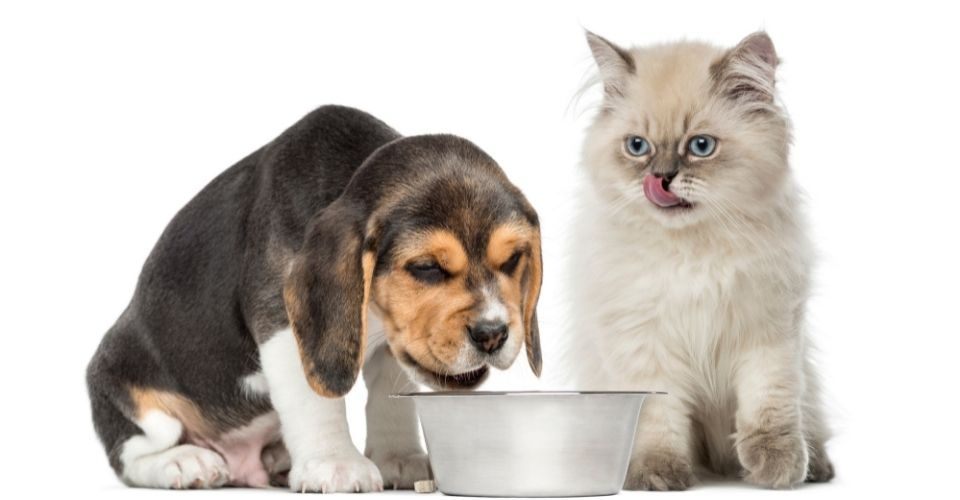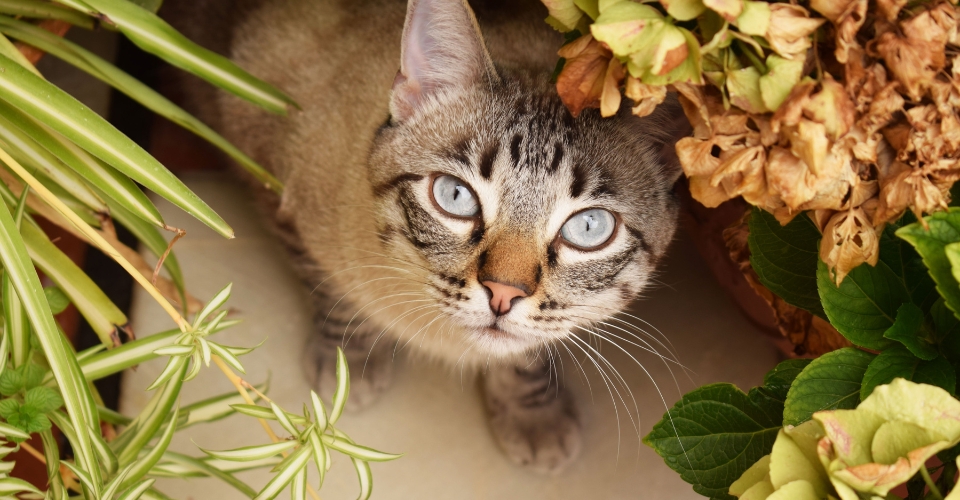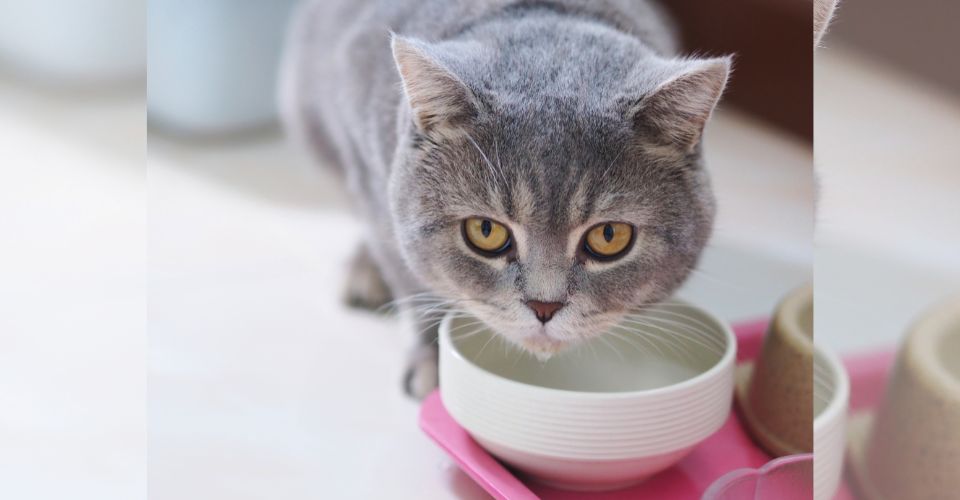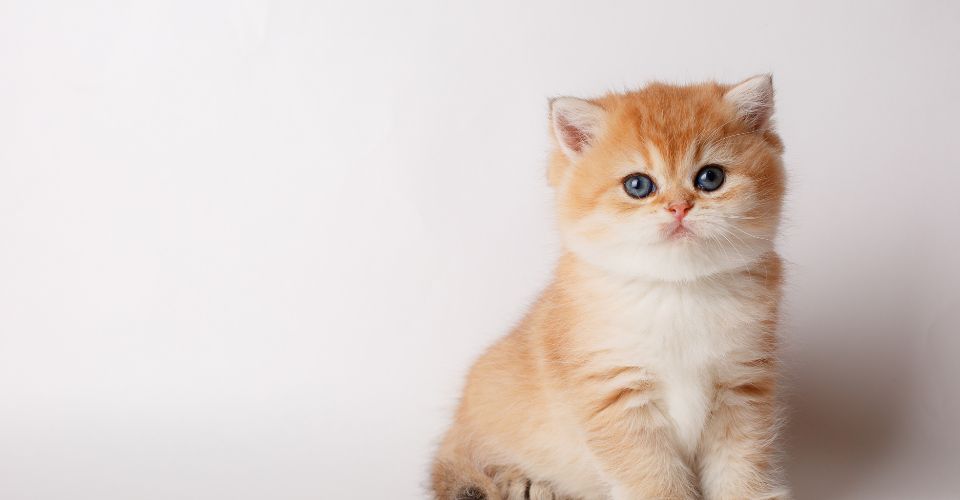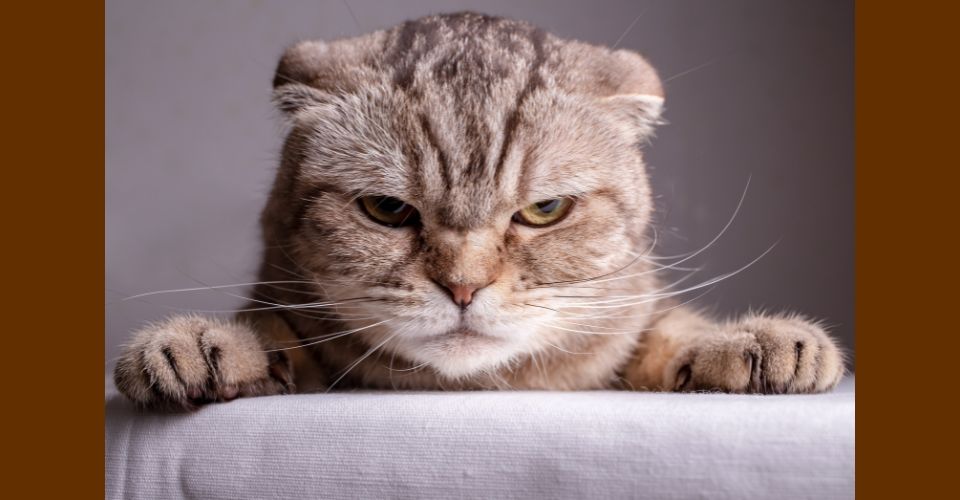Have you caught your cat eating dog food? Or, is it dinner time, and you just realized that the cat food pantry is empty, and now you are thinking of putting some dog food in your cat’s bowl? You might think, can cats eat dog food? Is it safe for cats to eat dog food?
Every pet owner keeping a dog and cat under the same roof has grappled with such questions at least once. They get worried about accidentally feeding their cat some dog food or their cat stealing a nibble from the dog’s bowl. Similarly, they are also worried about their dogs eating cat food.
Read on, and you will find answers to your questions in the lines below.
Can Cats Eat Dog Food?
There is nothing to worry about your cat casually nibbling your dog food. However, if they make it a habit, that is not okay—feeding your cat dog food indefinitely will be detrimental to the health of your cat.
Likewise, if your cat food pantry is empty, you can feed some dog food to your feline fella as a last resort. It is not the best practice, but it is better than keeping your cat hungry for a long night.
Can Cats Eat Wet Dog Food?
Unless your feline fella is allergic to any ingredient in the dog food, wet dog feed is safe for your cat to eat. A cat can easily chew wet dog food so it won’t pose any choking hazard to your cat. You might be amazed to watch your cat devouring the curry.
Can Cats Eat Dry Dog Food?
Just like wet food, cats can eat dry dog food—but casually, as we said. However, unlike wet dog food, dry food poses a choking hazard, as kibbles for dogs are comparatively bigger than kibbles for cats. Large-sized kibbles also cause jaw pain in cats. Therefore, before feeding your cat dry dog food, you should break down kibbles into small pieces so that your cat can easily chew them.
Why can we not make it permanent? It is simple; it is about the nutritional makeup of their foods. Both foods can seem quite similar, but their nutrient composition is quite different. Dog food might be meeting all the nutritional needs of a dog; it cannot be thought of as meeting all the nutritional needs of a cat due to their different nutritional requirements.
Nutritional Requirements of a Cat
While cats are often considered and treated like small dogs, they are not. Dogs are omnivores and can eat a wide variety of foods ranging from animal meat to plant-based foods; cats are obligate carnivores and need only meat-based foods. However, this does not mean that cats cannot digest nutrients from plants. They can, and they do. The only caveat attached is that it should not be for the long term. According to Deborah E. Linder, relying on an all-meat diet is detrimental for cats.
Some unique nutritional requirements of cats are as follow:
Protein
Cats are obligate carnivores and need a higher percentage of protein in their diet as than their canine fellas. According to the Association of American Feed Control Official (AAFCO), the nutrient profile of cats is based on dry matter; adult cats need 26 percent crude protein while growing and pregnant cats need 30 percent crude protein. Similarly, as per AAFCO nutrient profiles of cats, adult cats need a minimum of 65g per 1000 kcal, while growing kittens and pregnant cats need 75 g of protein.
Arginine
Arginine amino acids are a unique nutritional requirement of cats. Where many animals like dogs can make arginine, cats lack the enzyme needed for making arginine themselves. This is the reason that they need a higher amount of arginine in their diet. According to the AAFCO, adult cats need 2.60 g per 1000 kcal; kittens and pregnant cats need 3.10g per 1000 kcal.
Taurine
It is another amino acid that cats cannot produce; therefore, they need a higher amount of taurine in their food. Feeding cat food with a lower percentage of taurine can cause serious health problems in cats. According to the National Animal Supplement Council, taurine deficiency in cats can lead to permanent blindness and even heart failure. Since dogs can make it from meat protein, their food doesn’t essentially contain taurine. This is one of the reasons you cannot feed your cat dog food for an extended time.
What happens if a cat eats dog food?
Cats eating dog food is not a rare sight; they do munch on dog food often. Living under the same roof, cats and dogs are often found stealing each other’s food. While watching your canine and feline fellas sharing food or annoying each other by stealing food might be a pleasing sight, if it continues and develops into a habit, it can cause serious health issues—for both. As discussed above, since cats have unique nutritional requirements than dogs, feeding a cat dog food regularly can cause trouble for your cat in the long run.
True, cat and dog foods do have many common ingredients, but their needs are not the same. For instance, cats can casually eat dog foods; dogs, on the other hand, cannot do that often. Here is why you should be careful about feeding cat food to a dog.
To sum up, the short answer to your question “Can cats eat dog food?” is yes. Cats eating dog food occasionally is not a problem, but consuming it regularly can cause serious issues. Make sure that your cat eats only the kind of food that meets her nutritional requirements.
Find out what other foods cats can eat or not eat:

